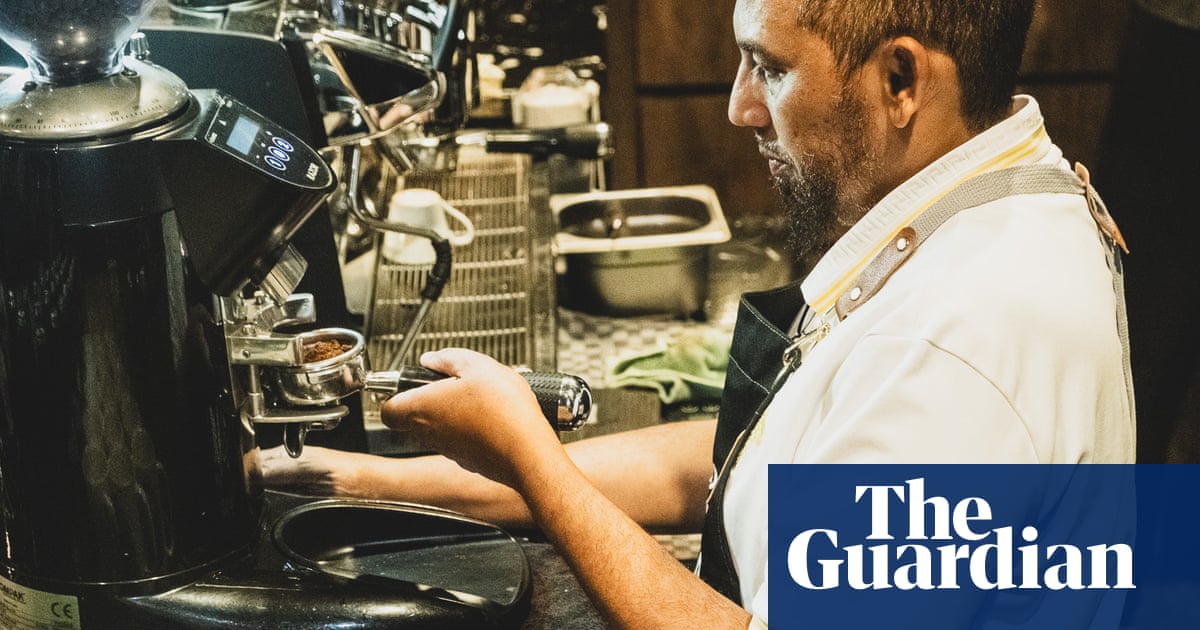Umar Patek, a convicted bomb maker involved in thedeadly 2002 Bali bombings, says that he is now a changed man.
Launching his own coffee business in the Indonesian city of Surabaya on Tuesday evening, the former member of the al-Qaida-linked terror group Jemaah Islamiyah, says these days he is more interested in “brewing peace” than mixing deadly explosives.
“I’ve changed now,” he told the crowd who had gathered at the Andreasmita cafe for the launch of his coffee brand, Ramu, which features pictures of his bearded face on the packaging.
“I don’t want to go back to the past,” he said, “I’m just looking to the future. I’m not making bombs any more – I’m making coffee.”
Patek was sentenced to 20 years in prison in 2012 for his role in theBalibombings, which killed 202 people, including 88 Australians, and 23 Britons.
In what remains Indonesia’s deadliest terror attack, Patek helped mix 50kg of the 1 tonne of explosives used in the bombs, while prosecutors said he helped assemble suicide vests, detonator cords and boosters.
But Patek says those days are long behind him.
Released from jail in late 2022, he has started to rebuild his life by marketing a spiced coffee blend based on his mother’s recipe, an initiative he says is part of his mission to help deradicalise terrorists.
“Ramu, if reversed, becomes Umar, my name,” he said, “Ramu in Indonesian means to mix. Like myself, who is currently mixing coffee.”
After his release Patek said he struggled to reintegrate into society until in 2023 he met David Andreasmita, a dentist and businessman who owns the Hedon Estate cafe in Surabaya, who decided to offer him a second chance.
“Many people thought it was strange that I wanted to work with a former terrorist,” Andreasmita said. “I have always liked helping people. [But I knew] if I let Umar be, then it would be very possible he would become a terrorist again.”
“I am Christian and he is Muslim, but we can joke together. Umar even considers me his mentor,” he said, “This coffee business is a form of deradicalisation.”
But for survivors and families of the victims, redemption remains difficult to accept.
At Tuesday’s launch, Husnul Khotimah, an Indonesian survivor, confronted Patek about his former life.
“Do you still remember me?” she asked him.
“Look at this,” she continued, gesturing to the scars on her arms and hands – a fraction of the burn scars that still cover 70% of her body.
Patek stood and listened, and appeared moved by Khotimah’s words. He said he did remember her, from his sentencing in 2012 at which she had also confronted him, and apologised again.
“I’m sorry that my apology is not comparable to the suffering you feel. If my business is successful, David and I are committed to inviting you and other victims to work with us.”
Khotimah, from nearby Sidoarjo, underwent 37 surgeries in Indonesia and Australia and still has metal fragments lodged in her legs from the attacks.
“It is very difficult for me to forgive Umar and his friends,” she said, “Especially with my suffering and struggles in the past.”
In 2022, Australian prime minister Anthony Albanese said he had “contempt” for Patek’s actions and that his early release would renew trauma for victims’ families.
Patek said he has apologised many times in the past.
“Today, I apologise again. Let me prove that I have changed,” he said, “Everyone is watching me now.”
After fleeing Bali before the attacks, Patek spent nine years on the run in Pakistan and the Philippines, where he was affiliated with the Moro Islamic Liberation Front. He was arrested in 2011 in Abbottabad, Pakistan – the same town where Osama bin Laden was later killed.
He was also convicted for his involvement in the 2000 Christmas Eve church bombings in Indonesia that killed 18 people.
Tuesday’s event drew local and national politicians, and the former head of Indonesia’s counter-terrorism agency, Marthinus Hukom, who helped arrest Patek. Some attendees welcomed his efforts to turn his life around.
Security analyst Noor Huda Ismail, founder of The Institute for International Peace Building, said his team had worked with Patek post-release and that his case showed good potential for rehabilitation.
“His willingness to disengage from violent ideology and embrace a peaceful identity has been crucial,” Ismail said. “Equally critical is the ecosystem of support – people who are willing to look beyond his past and invest in his future.”
Patek had disengaged from radical networks and been supported by family and the Indonesian government’s reintegration program, which includes counselling, religious re-education, and economic support, he said.
“Extending a second chance to someone like Umar Patek is not about forgetting the past,” he said, “It’s about reducing the risk of future violence and building a safer society.”
For his part, Patek said he understood that some may never forgive him.
“The public can see and judge for themselves,” he said, “Starting now.”
